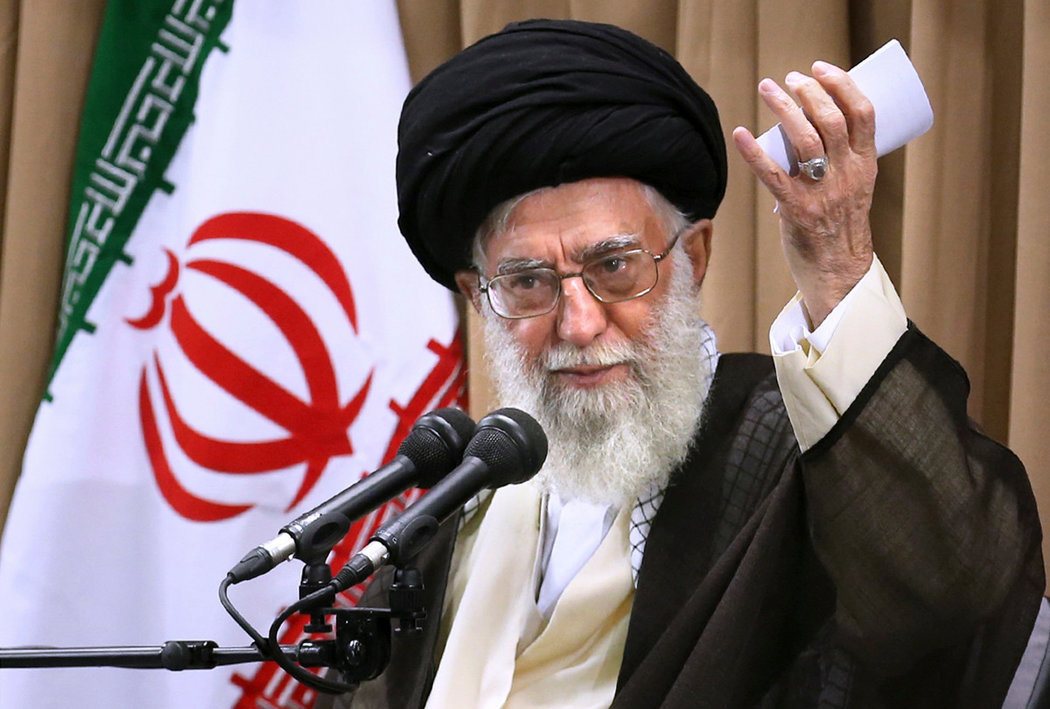Iran Leader Deepens Economy Divide With Rouhani as Election Nears

EghtesadOnline: Iran’s supreme leader said candidates in next month’s presidential election should pledge not to rely on foreign investment to strengthen the economy, reinforcing his apparent differences with incumbent Hassan Rouhani, who has sought to woo international investors.
All candidates need to “promise the people that in order for the country to progress, for economic growth and to untie the knots, their eyes won’t be set outside our borders but on the nation itself,” Ayatollah Ali Khamenei told officials on Tuesday, according to the official Islamic Republic News Agency.
According to Bloomberg, the May 19 election will help determine whether Iran remains committed to Rouhani’s engagement with the West. The moderate cleric is facing mounting frustration over the landmark 2015 nuclear deal that critics say hasn’t yet benefited poor Iranians -- criticism echoed recently by Khamenei, who has final say over state matters.
Key Khamenei ally and conservative cleric Ebrahim Raisi is expected to be among Rouhani’s closest challengers and has put job creation at the center of his campaign, vowing to make his government one of “dignity and work.”
In visits to factories and oil fields in the past few weeks, Rouhani has defended his economic record, calling on Iranians to maintain faith in policies he expects to yield benefits during a second term. While his government has lowered inflation to single digits from 40 percent under his predecessor, ramped up oil production and restored the economy to growth, the surge in investment expected under the nuclear accord is yet to materialize.
Speaking on Tuesday, Raisi pointed to the construction sector as a potential driver of employment, declaring he would look to create up to 1.5 million new jobs a year if elected. Another leading conservative candidate, Tehran Mayor Mohammad Baqer Qalibaf, has said he plans an “economic revolution” that will generate five million jobs.
‘Core Value’
All three men agree with the supreme leader on the importance of self-sufficiency, which is a core value of the Islamic Republic, said Clement Therme, a research fellow with London’s International Institute for Strategic Studies who focuses on Iran. But they differ on the risks involved in basing the recovery on overseas investment.
Rouhani “thinks if people become richer, the revolution will be stronger and the best way to do it is to bring money into the system, to appeal to Western investment,” Therme said by phone from Manama. For many conservatives, including Raisi, “there is a risk of opening the economy, to bring the West in, only to see cultural values collapse.”
A survey conducted by the Toronto-based company IranPoll released last week showed that 72 percent of respondents believed the nuclear deal hasn’t improved the living standards of average Iranians.
Six candidates have been approved by Iran’s Guardian Council to run. Others include moderate Vice-President Eshagh Jahangiri, former Culture Minister Mostafa Mirsalim, a conservative, and Mostafa Hashemi-Taba, a former minister of industry.


